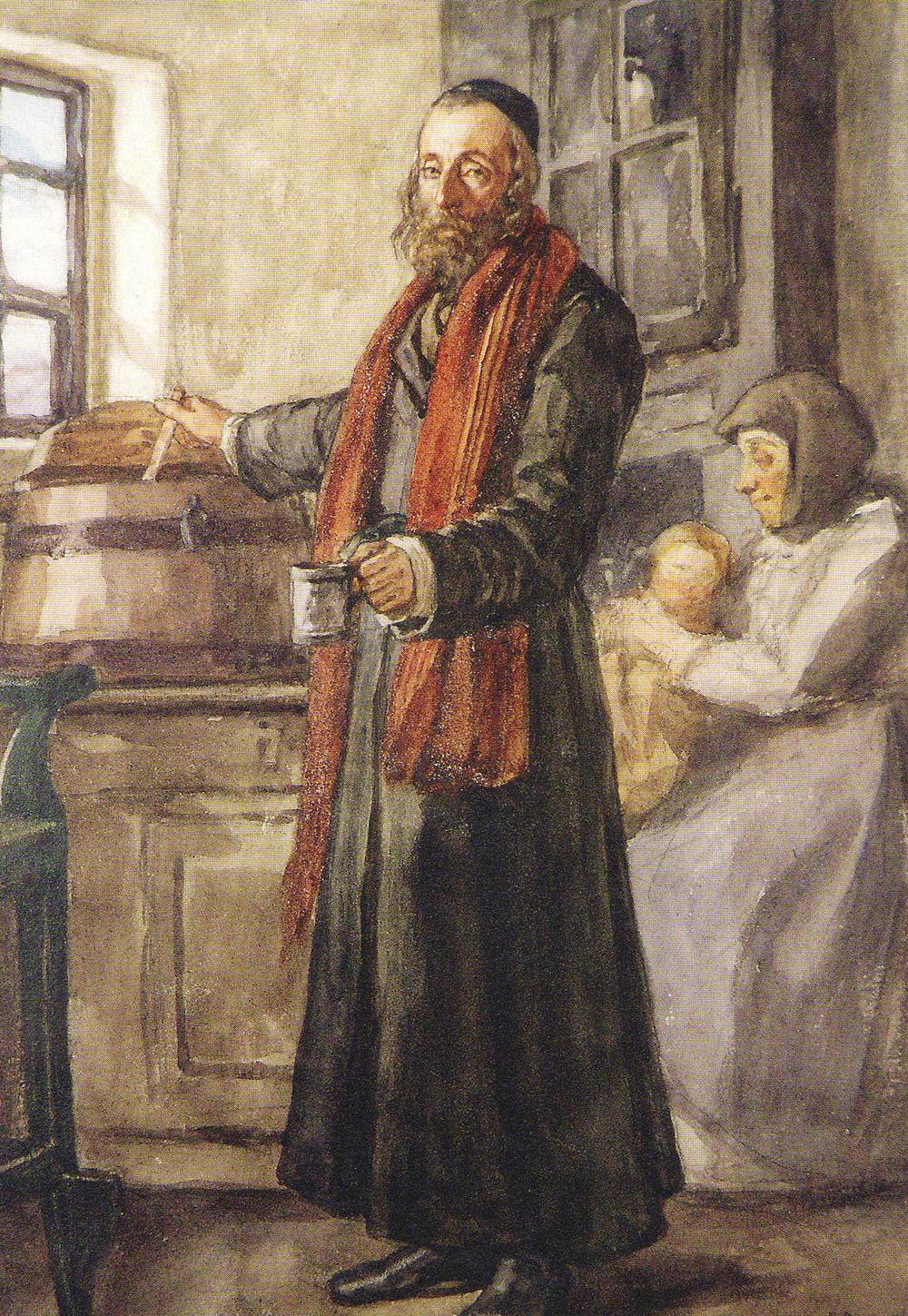By Glenn Dynner
Today, observant Jews the world over are selling off their leavened foodstuffs (chametz) in preparation for the Passover holiday, which begins with a seder this evening and is followed by eight days of eating matzah, macaroons, and other unleavened products.
But in Eastern Europe, where the vast majority of American Jews have roots, the sale of leavened products not only used to be more widespread, it was more complicated. Many East European Jews—almost 40%—made their living selling beer, wine, and rye-based vodka in taverns leased from the Polish nobility. Passover was a forced holiday for them.

Henryk Rodakowski, “Karczmarz Jasio,” z cyklu Album Pałahickie, 1867, akwarela na papierze, 32 x 23 cm.
During the eight days of Passover, Jewish tavernkeepers had to “sell” all of their leavened products to non-Jewish neighbors. Rabbis drew up contracts for the fictitious sales similar to those utilized today, a loophole meant to prevent economic ruin.
Problems emerged in the early nineteenth century, when the government attempted to drive Jews out of rural tavernkeeping (ostensibly to protect the peasants from drunkenness and ruin) by imposing heavy concession fees on them. The Hasidic master Moses Eliyakim Beriyah of Kozienice lamented that “several of the [Jewish] villagers were forced to apostatize because of their need to make a living.”
The main issue for the numerous traveling Jewish merchants, who relied on Jewish-run taverns for hospitality, was not that those proprietors had converted to Christianity. It was that, according to Jewish law, the proprietors were technically still Jewish. Yet who could be sure that they were “selling off” their leaven products to gentiles during the intermediate days of Passover? This cast doubt on the ritual fitness of everything they sold. A governmental investigation, preserved in Polish archival records, confirms that most Jewish customers refused to purchase liquor from apostate tavernkeepers on these grounds.
Thus, conversion to Christianity did not turn out to be much of a solution for Jewish tavernkeepers struggling under the weight of discriminatory legislation. Instead, many began to evade concession fees by going underground—permanently installing Christians as “fronts” for their taverns. They did this with the full knowledge and participation of their Christian neighbors, a beautiful reflection of Jewish-Christian coexistence at the local level during the rise of absolutism!
Glenn Dynner is Professor of Jewish Studies at Sarah Lawrence College and the author of Yankel’s Tavern: Jews, Liquor, and Life in the Kingdom of Poland. He has been a Fellow at the Katz Center for Advanced Judaic Studies at the University of Pennsylvania, a member of the Institute for Advanced Study at Princeton University, and is currently the NEH Senior Scholar at the Center for Jewish History in New York.
Subscribe to the OUPblog via email or RSS.
Subscribe to only religion articles on the OUPblog via email or RSS.
The post Passover in Jewish Eastern Europe appeared first on OUPblog.


